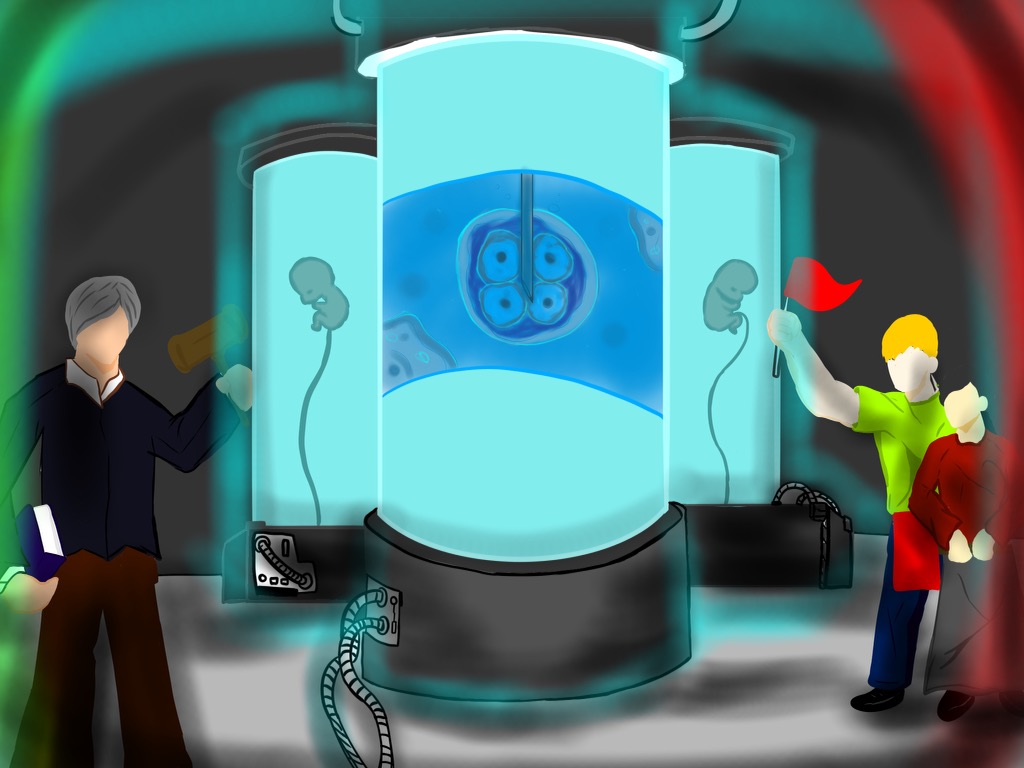On Feb. 16, the Alabama Supreme Court declared that any embryos created in vitro fertilization (IVFs) should be considered children under the Wrongful Death of Minor Act. This decision gives legal personhood to embryos, creating intensive complications regarding IVF treatment regulation, especially in terms of the disposal, transfer and storage of embryos.
The repercussions of the decision extends beyond state lines, as other states respond to the news of the ruling. While 13 states have introduced new bills under review that give embryos legal rights, some states are still deciding whether to alter their legislation around the Alabama Supreme Court’s decision, like Florida’s ruling to protect the “unborn child.”
Labeling embryos as children creates numerous challenges that threaten not only the quality of IVF treatments in America, but also the foundation of basic human autonomy rights.
The Alabama Supreme Court’s decision sets a dangerous precedent that caused significant legal, medical and ethical issues for parents and fertility centers. While intended to give embryos a human right, it only creates further complications in healthcare, as it increases legal liability for fertility clinics, restricts IVF treatments and interferes with the basis of reproductive rights, particularly in relation to abortion.
Alabama is one of the first states to extend individual rights to embryos in the context of wrongful death. The case emerged from numerous lawsuits filed by couples after their stored embryos were accidentally destroyed. At the trial, the judge declared that embryos that exist in vitro are not people or children for the purposes of the act, and that the claim made by the couples were invalid. The couples appealed to the Supreme Court of Alabama, the highest form of the judiciary branch in the state, and it was determined, in fact, that protection was extended “to all unborn children without limitation … that includes unborn children who are not located in uterus at the time they are killed,” and that couples can therefore proceed with their lawsuits.
Until the Alabama State Legislature granted immunity for IVF providers for wrongful deaths of IVFs, numerous IVF clinics such as Mobile Infirmary paused their services, out of fear of legal liability.
What many fail to realize is the absurdity of the issue itself, and the numerous complications it brings about to these clinics and clients.
Regardless of immunity, this ruling places a huge responsibility on IVF clinics, as they are now responsible for the millions of “children” that they have to not only preserve, but ensure the safety of under the pressure of the new bill.
Beyond legal complications, this poses ambiguity regarding what the next steps are for abnormalities in the embryos that are routinely discarded to help patients avoid miscarriages. For instance, if an embryo was said to have an abnormality of disease, that could result in a miscarriage if transferred, would it truly be in the best interest of the mother to continue to transfer them off of the basis that the Alabama Supreme Court states that all embryos, diseased or not, are children?
The precedent set by the Supreme Court of Alabama sets a distasteful standard that does not appropriately meet the needs of America’s IVF parents.
Would this lead to the forced transfer of abnormal embryos, since there is no basis or legal right to discard them?
With the fear of abnormal embryos in Alabama fertility clinics and the increased regulations on the handling methods of the fertility treatments, many IVF donors are instead transferring their embryos to fertility clinics in different states.
In an NBC Interview discussing the Alabama court decision, IVF donor Alisha Larson Posey, returned to the IVF clinic after the birth of her son, stating she feels more comfortable with her eggs in Colorado versus Alabama: “I don’t feel comfortable having them here [in Alabama] anymore.”
When asked in a different interview with NBC, Dr. Karen Hammond, an innovative fertility specialist from Alabama responded to the question, “Does it feel odd that people are planning their families around a court decision?” with, “The whole thing feels odd to me.”
These recent rulings have incited a focus on the upcoming election, as voters begin to question the candidates stances on the issues.
“I think [this is] perhaps a reality check,” Hammond said. “[This is what happens] when a government is involved in reproductive rights.”
The ruling is not just a simple shift in policy — it’s a clear example of government outreach into a medical decision that should stand in its own sector of self-governance.
While many argue that Alabama granted immunity to these clinics in response to the new bill, they fail to recognize the broader implications and burden it puts on the clinics in Alabama. As more restrictions are set, and an embryo is now declared a child, facilities face more responsibilities in caring and managing them.
The Alabama ruling creates a risky precedent into the state of reproductive rights, implying that the fertilized eggs are human beings, whether lying in a fertility clinic or in the womb of a mother. While having the most restrictive abortion ban in the nation, the threat of other states following in the steps of the Alabama Supreme Court rulings poses immense dangers regarding not only the quality of IVF treatments, but a woman’s rights to their own bodily autonomy.
The bill disguises itself as a “protection for the unborn” while what it truly represents is another opportunity for “justified” governmental control of personal sovereignty. Let’s see the bill for what it really is: an assault on individual freedom posed for our protection.









